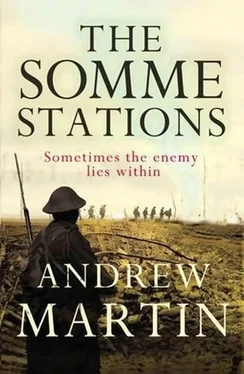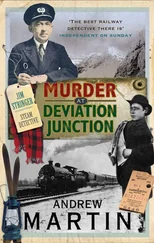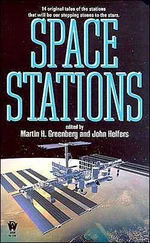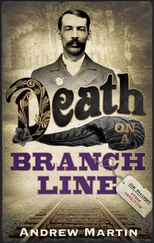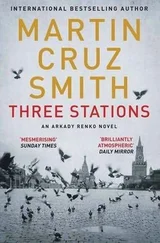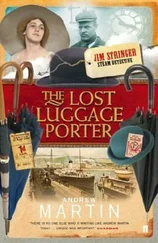John Read… that had been the name of the bloke I’d charged with indecent exposure. He’d been the last man I’d arrested before enlisting, and he was William Harvey’s real father. What had become of him? Being drunk, it was hard for me to round up all the facts. They’d keep wandering away. He might well have gone to court and been lagged. He might have been sent down for six months. The Company solicitors would have handled the prosecution. They had all the witness statements… and if Harvey’s father had been gaoled on this charge, would young Harvey have known of it; and would he know I’d been the arresting officer? If so, it would give him a reason to hate me. But he hadn’t hated me, or if he had, he’d kept the fact well hidden. If he did know, he’d have a motive against me, whereas what Thackeray needed to find was a motive the other way about. Even so, this could be seen as the cause of needle between me and Harvey.
The man who’d talked about the flame-thrower was laughing – and laughing too loud – as I tried to get hold of the important questions: did Company Sergeant Major Thackeray know of my connection with Harvey’s true father? Next question: would he be likely to find out? And what would he make of the fact that I hadn’t told him? Well, I hadn’t told him because I hadn’t known. But he wouldn’t believe that.
I found myself eyeing Dawson. He seemed to meet my gaze, saying, ‘You fucking rotter.’
I thought: Here we go, another barney, and this time I won’t be palling up with him afterwards.
‘Fucking treacherous fucking copper…’ Dawson was saying, ‘Fucking monkey .’
And at that word I was let off. I might be a copper, but I was certainly not a monkey. I turned and there was Thackeray himself. He was with another military policeman. They were the only two blokes not holding glasses. The second bloke had a smaller moustache – not as good as Thackeray’s, but Thackeray was being big about it, smiling at him. There were about twenty standing blokes between us and him. He did not appear to have heard Dawson’s remarks – not yet – although the bar had gone a bit quiet. The barkeeper, seemingly panicked out of his good English, said ‘English police here! End of beer and wine!’ (Bars closed early in the garrison towns. Perhaps it was ‘time’.) This caused uncertainty in the bar and another moment of silence, but Thackeray seemed to be indicating to the barkeeper that he was quite all right to keep on serving. I assumed he thought that blokes at the front were entitled to a bit of a drink-up occasionally. The stream of chatter started up again, and it might have been enough to keep Thackeray from hearing as, Dawson, standing, called out, ‘The enemy’s that way, in case you’ve forgotten.’
That was twenty-one days’ field punishment right there – if not five years in a military prison – but Thackeray did not react. I began pulling Dawson towards the door (with Tinsley in tow), going a roundabout way, so as to avoid Thackeray and friend. When we were about halfway to the door Thackeray, who I really believed had not yet spotted us, laughed at something his mate said, at which Dawson yelled out, ‘Can it, you warphead!’
Thackeray stopped laughing He began turning his head our way as I fairly threw Dawson at the half-open door of the bar. We tumbled out onto the steps.
‘Did he clock us?’ said Tinsley. ‘If he clocked us, he’ll never leave off.’
‘John Smith’s bitter…’ I said, as we made our shambling way along the half-illuminated street that led to the railway station.
‘Where?’ said Dawson.
‘You should lay off it,’ I said, and he made no reply.
The railway station was packed with blokes. It too was half shrouded in darkness, but how can you keep a railway station secret? As we got there, two long dark trains came in. One was going to the war and one was going away. We climbed onto the one going to .
Aveluy Railhead and Points East: Early September 1916
‘I’ll just give her a breath of steam.’
Tinsley, shovelling coal, looked up at me and grinned. It had been the right thing to say.
Then – since I’d caught a bit of a chill – I pressed my right nostril and blew snot from my left down onto the footplate, at which his grin faded.
‘I’ve just swept that,’ he said.
‘It’s a bloody footplate,’ I said, ‘it’s not carpeted.’
The light was fading over the Dump as I eased back the regulator. We would be the first train to go out. We had six carriages on – and Oliver Butler as chief brakesman. He stood on the rear of the back wagon, controlling its brake, and it would be his job to tell Dawson when to apply the brake on his own wagon, which was the third. It was to be hoped that these two brakes and those on the engine would do the job. Two other trains were all ready in the sidings to come onto the main ‘Up’ – the line that led to the front, where the ‘hate’ was building up nicely. The sky over there glowed green and red, colours that periodically shook.
Tinsley and I had both had a tot of rum. We’d taken it in the running office, where the lines going forward were all mapped out on a blackboard. Oamer had drawn thick lines (with the side of the chalk) for the lines already put down, and thin lines (with the end of the chalk) for the extensions and branches that would be laid shortly by the Butler twins, amongst others of the tough, silent, platelaying breed. Control points on the line – both existing and planned – were also marked. These took, or would take (since only one was actually operative at that moment) the form of one or more blokes in a dug-out. They would be equipped with a telephone and a lamp for indicating to the engine crews whether they could proceed.
We were stuck with this Somme offensive, which was a very bloody and slow one. Some of the New Army Battalions had been half wiped out, and word was that the whole of the town of Accrington was draped in black, for the Accrington Pals had had a particularly hard time of it at the start of the show.
The business in hand for us was the endless bloody scrap over the village of Pozières, or what was left of it. The narrow-gauge railway now went a little further towards that shattered village – about level with the latest line of reserve trenches, but there was also a new feature: a branch off to the right, which is to say to the east, for the supply of batteries targeting German strongholds at spots like Bazentin le Petit, Delville Wood, Ginchy, Combles. It was hoped to capture these places and make of them a new front.
We would be running along the new branch, and delivering our goods to two gun positions served by it. As we rolled away, I noticed that about half the blokes at the Dump, some holding lamps, had turned out to see us go off. They were watching the fruits of their labour, namely the start of the regular runs. Riding with us on the footplate was Captain Muir, the quiet sort who’d been dead wrong about us all coming back in one piece from the last run. He kept making notes in a little book that he pulled periodically from his pocket.
By shutting off steam, and opening the sand valves, I avoided wheelslip on the greasy rails as we climbed the incline to the first of the trees, and he made a note of that – or, more likely, of something altogether different, since I did not believe he was familiar with engine driving techniques.
I looked at Tinsley, who was shovelling coal.
‘Little and often with the coal and water,’ he said – this for the benefit of Muir, by way of explanation, because in moving to the firehole Tinsley would keep requiring the officer to step aside. ‘Little and often… That’s Tom Shaw’s motto,’ he said to me, as he closed the firehole door. I frowned at the kid, and he hesitated for only a fraction of time before cottoning on and opening the firehole door. That was one way to keep our production of smoke to the minimum – draw in cold air so as to discharge the products of combustion.
Читать дальше
